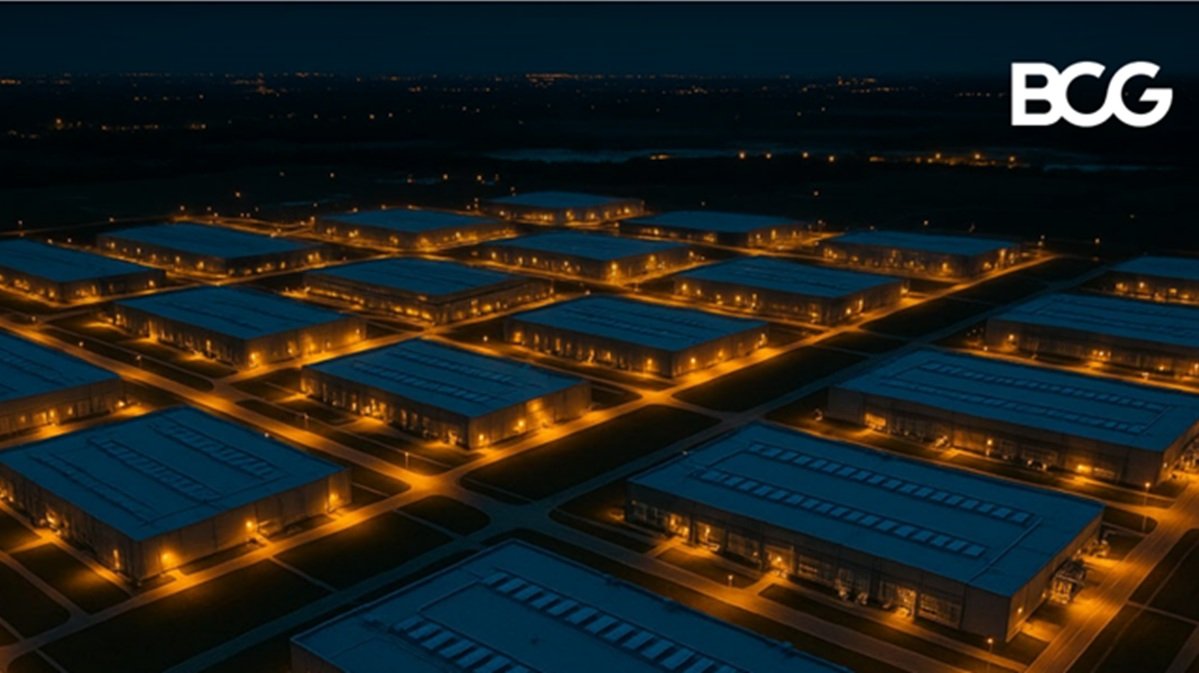 Boston Consulting Group (BCG) announced the launch of its new report, “AI Data Centers: An Opportunity in the Middle East“, during the sidelines of MWC Doha 2025, revealing that the Middle East is rapidly positioning the region as a rising global nexus for AI data center investment and innovation. As global demand for AI infrastructure accelerates, with data center power needs projected to grow from 86GW in 2025 to 198GW by 2030, BCG finds that the Middle East has a uniquely competitive advantage in supplying scalable, cost-efficient AI compute capacity.
Boston Consulting Group (BCG) announced the launch of its new report, “AI Data Centers: An Opportunity in the Middle East“, during the sidelines of MWC Doha 2025, revealing that the Middle East is rapidly positioning the region as a rising global nexus for AI data center investment and innovation. As global demand for AI infrastructure accelerates, with data center power needs projected to grow from 86GW in 2025 to 198GW by 2030, BCG finds that the Middle East has a uniquely competitive advantage in supplying scalable, cost-efficient AI compute capacity.
Middle East: A Critical New Hub of AI Data Center Investment
BCG’s report highlights that the Middle East is not merely participating in the global AI infrastructure race; it is fast emerging as a critical new hub of AI data center development. The region benefits from distinctive structural advantages. Its strategic geography places it within a 2,000-mile radius of over 3 billion people, enabling it to serve Europe, Asia, Africa, and the Global South with non-latency-sensitive AI inferencing at scale. Competitive cost structures, including up to 50% lower leasing rates, low power tariffs, and advanced cooling systems adopted by regional operators, significantly reduce the total cost of ownership. Meanwhile, markets such as the UAE and Saudi Arabia continue to accelerate time-to-market for new data centers through fast-track development, dedicated investment teams, and special economic zone clusters such as Masdar City’s Stargate Campus. This momentum is reinforced by the region’s expansive land availability, scalable power ecosystems, and the planned ~720 Tbps Fibre in the Gulf (FIG) submarine cable project.
Thibault Werlé, Managing Director and Partner at Boston Consulting Group (BCG), said: “The Middle East is undergoing a pivotal transformation as it positions itself to become a global hub for AI infrastructure. With strategic investments, progressive digital policies, and ambitious national visions across Qatar, the UAE, and Saudi Arabia, the region is building the foundation for scalable, next-generation AI compute. Qatar’s ongoing initiatives, showcased during MWC Doha, reflect the broader regional commitment to shaping a competitive and globally relevant AI ecosystem that can serve markets across Europe, Asia, Africa, and the Global South.”
Country Momentum Across the Region
The report outlines major national initiatives shaping the Middle East’s AI infrastructure landscape. Saudi Arabia has launched HUMAIN with a targeted 1.9GW AI data center capacity, along with partnerships with NVIDIA, AMD, AWS, DataVolt, and Groq to develop multi-hundred-megawatt AI campuses, including the world’s largest AI compute center. The UAE is advancing a 5GW AI campus in Abu Dhabi under the US-UAE AI Acceleration Partnership and is importing 500,000 GPU for regional and US partners, supported by Microsoft’s USD $15.2 billion AI and cloud infrastructure investment. Qatar’s strategic investments complement these national efforts and reinforce a GCC-wide push toward establishing a global AI compute corridor.
Qatar Leading Regional Momentum
Qatar is steadily strengthening its position as a competitive player in the global AI and technology race, supported by strategic investments from the Qatar Investment Authority (QIA). These include the establishment of a USD $3 billion global platform with Blue Owl Capital to accelerate international AI and cloud infrastructure expansion, as well as QIA’s participation in Anthropic’s USD $13 billion funding round. These initiatives underscore Qatar’s commitment to advancing its digital capabilities and align closely with the ambitions of the Qatar Digital Vision 2030.
MWC Doha serves as a testament to the country’s growing role in shaping the regional technology landscape, reflecting Qatar’s intent to contribute meaningfully to the Middle East’s emerging AI infrastructure ecosystem.
Reflecting on BCG’s participation at MWC Doha, Harold Haddad, Managing Director and Senior Partner noted: “Qatar’s digital ambition is rapidly taking shape, driven by decisive leadership and a deep commitment to innovation. In line with Qatar National Vision 2030 and Qatar’s Third National Development Strategy, the country is harnessing AI and emerging technologies to cement its role as a competitive force in the global digital economy. Hosting Mobile World Congress Doha reflects this momentum and Qatar’s growing influence as a pivotal hub for technological advancement. At BCG, we are proud to contribute to this journey, partnering across sectors to help build the digital foundations of the future economy.”
Recommendations for Middle Eastern Governments
To fully unlock the region’s potential, BCG recommends that governments create streamlined, unified investment packages that integrate key inputs such as land, power, water, and connectivity within clear, time-bound frameworks. Expanding a diverse ecosystem of business and financing models including hyperscalers, GPU-as-a-Service providers, equity platforms, and bond-backed investments will be critical to enabling flexibility for market entrants. The report also emphasizes the importance of strengthening partnerships across chipset suppliers, research institutions, and component manufacturers to accelerate innovation across the AI data center value chain. Developing and retaining world-class digital and AI talent remains a central requirement for long-term competitiveness, capacity building, and sustained innovation.
As AI continues to reshape economic landscapes, data centers form the critical backbone of global technological leadership. With its strategic geography, favorable economics, and ambitious national digital agendas, the Middle East is uniquely poised to emerge as a global AI data center powerhouse—particularly for regions requiring scalable and cost-efficient AI compute such as the Global South.
To view the full report, please click here.




